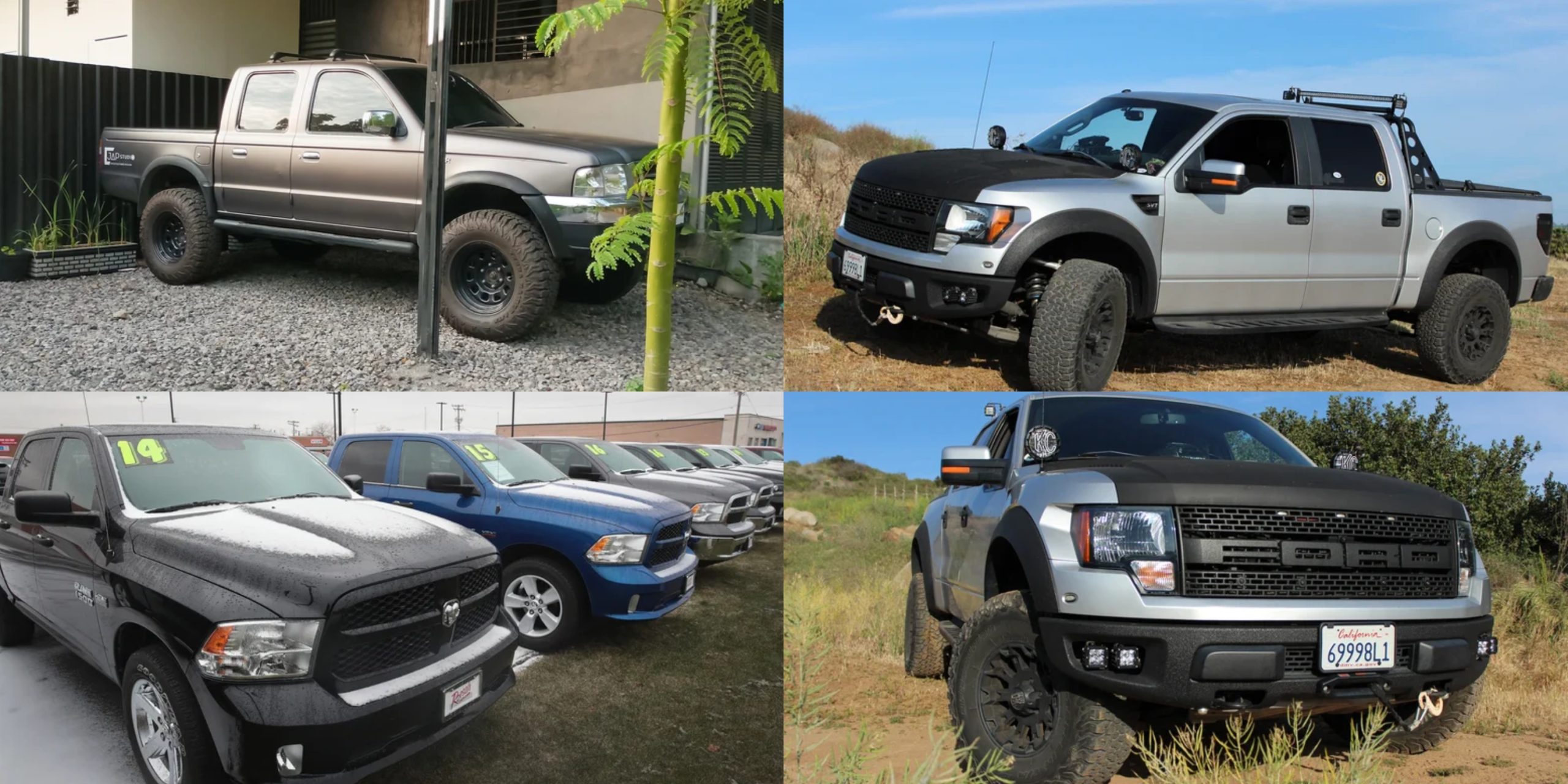Recalls can happen to any type of vehicle, including pickup trucks, which are often used for tough jobs across America. While some recalls are for small problems or as a safety step, others are much bigger, cost a lot of money, and can even be very dangerous, putting many drivers and their vehicles at risk.
Over time, there have been recalls that range from small annoyances to serious problems that could risk lives. Well-known companies like Ford, Ram, Toyota, and GM — which many people trust — have all had times when problems in the design or build of their vehicles led to major issues.
These recalls usually deal with safety problems that are important enough to be watched closely by the U.S. National Highway Traffic Safety Administration (NHTSA), which works with carmakers to help keep the public safe.
The figures involved can be very large. For example, back in 2008, Toyota recalled more than 1.5 million trucks because of major rust problems in the frames of their Tacoma and Tundra models.
That rust could weaken the structure of the truck. And that wasn’t the only time this happened. Recalls on this level cost car companies billions of dollars, not just to fix the vehicles but because people may lose trust in the brand.
When pickup trucks are recalled, they often need big repairs or important parts replaced. Because newer vehicles are so complex, fixing these problems can be extremely expensive for the companies.
While recalls like this don’t happen all the time, they stand out because of how serious they are and what they’ve shown the auto industry over time.
Also Read: 10 Best Hybrid Cars of 2025 That Balance Fuel Efficiency, Reliability, and Everyday Comfort
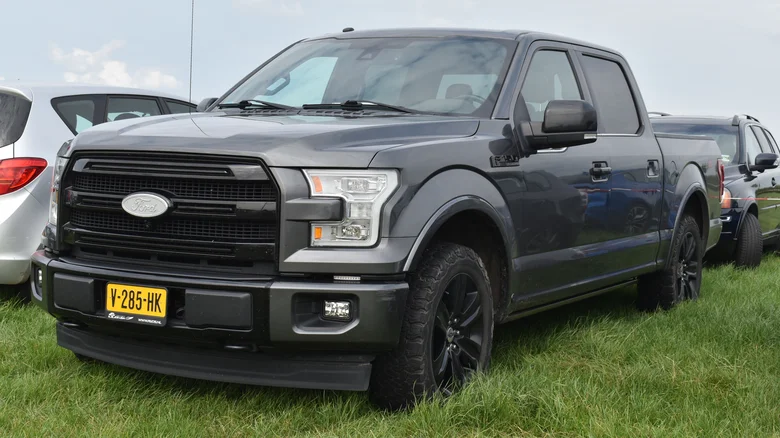
Ford F-Series door latch recall
In 2017, Ford recalled over 1.3 million F-Series trucks because of a problem with the door latches that could affect safety. This issue happened more often in colder places and involved side door latches that could freeze.
When that happened, the doors might not open or close the right way. Sometimes, a door could seem like it was shut but wouldn’t lock properly. That made it dangerous, as a door might swing open while driving.
The recall included 2015 to 2017 Ford F-150 trucks and 2017 Super Duty models. Ford said the problem came from water getting into the latch system, freezing, and stopping it from working correctly. Even though there were no crashes or injuries reported, Ford took action early to fix the problem and stop any danger to people in the trucks.
Ford’s fix was to put water shields on the door latches to stop them from freezing. They also checked the latch cables to make sure they weren’t damaged.
The repairs were free for truck owners, showing that Ford was serious about keeping people safe, especially since the F-Series is such a well-known and widely used vehicle.
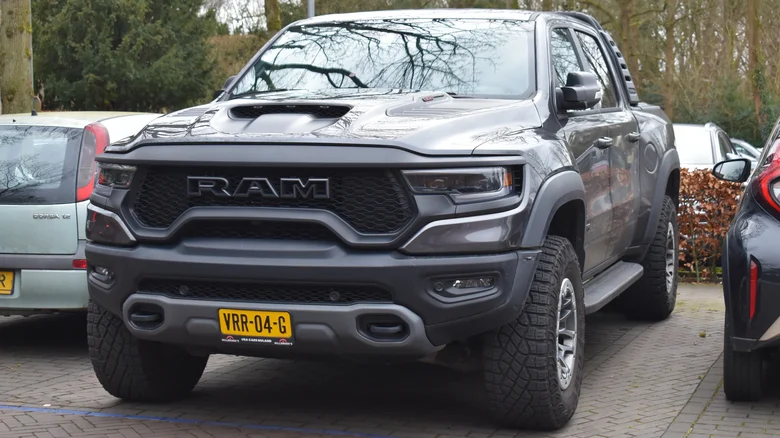
Ram software glitch
Modern vehicles depend a lot on complex software systems, but when those systems stop working properly, the results can be serious. In 2024, Ram had one of its biggest recalls ever, calling back 1.2 million Ram 1500 pickup trucks because of a software problem that could turn off the electronic stability control (ESC) system.
The ESC system plays a key role in keeping the vehicle steady during emergencies or when roads are slippery. If it’s not working, drivers may lose control, especially during quick or sudden movements. The problem came from the anti-lock brake system (ABS) control module.
A software issue could cause the ESC and other safety systems to shut down. The trucks involved were made from 2019 to 2024, but the 2020 model year was not included.
Drivers of these vehicles might see warning lights on their dashboards showing problems with systems like ABS, Adaptive Cruise Control, and Forward Collision Warning. Even though these warnings appeared, the main braking system continued to work normally.
Ram’s parent company, Stellantis, reached out to owners in October 2024, asking them to visit dealerships for a free software update to get the ESC working again. Fortunately, no crashes or injuries connected to this issue had been reported at the time of the recall.
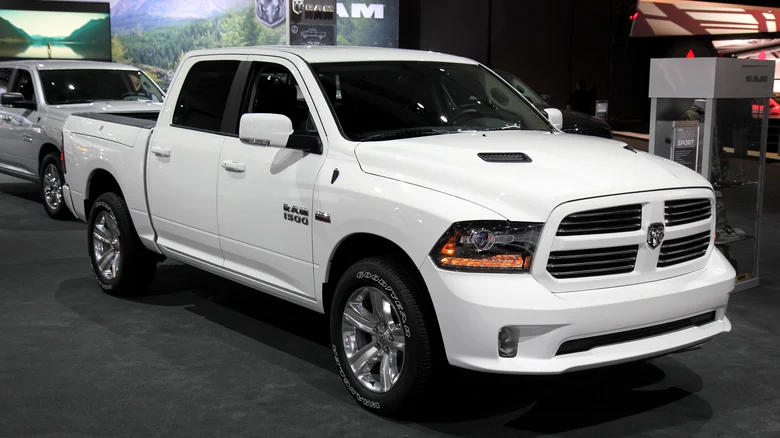
Fiat Chrysler Automobiles software error
Adding advanced technology to vehicles has changed how people drive, but it has brought new kinds of problems as well. A major example came in 2015, when cybersecurity researchers showed that hackers could take control of a Jeep Cherokee from a distance.
This test showed a serious weakness in Fiat Chrysler Automobiles’ (FCA) Uconnect infotainment system. Hackers were able to reach important parts of the vehicle, like steering, braking, and speeding up.
To fix this serious safety problem, FCA recalled 1.4 million vehicles that had the risky 8.4-inch touchscreen Uconnect system. The recall included popular models like the Dodge Ram 1500, 2500, and 3500 trucks, along with the Jeep Cherokee and Grand Cherokee SUVs made between 2013 and 2015.
The fix was a full software update that would stop anyone from getting into the system remotely. FCA sent USB drives with the update to vehicle owners so they could install the fix themselves. Owners also had the choice to go to a dealership or download the update online to protect their vehicles.
FCA added more security at the network level too, to help prevent future hacking attempts. Thankfully, the company said there were no real-world crashes or injuries linked to the hacking risk, besides the test done by the researchers.
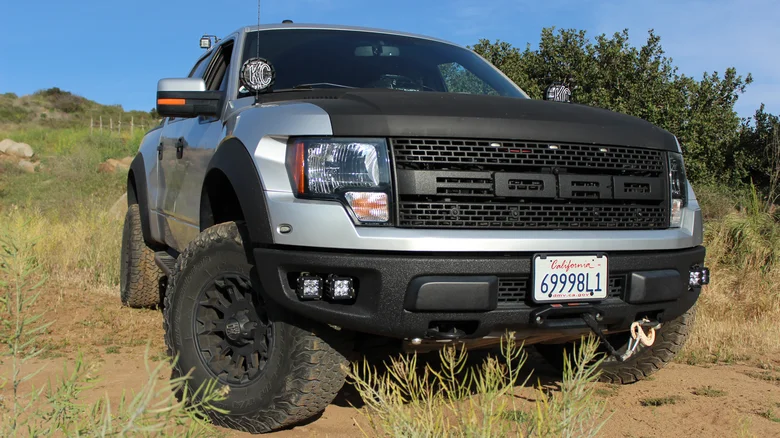
Ford F-150 seat belt fires
In 2018, Ford recalled about two million F-150 pickup trucks because of a strange fire risk related to the seat belt pretensioners. These are safety devices meant to tighten the seat belts during a crash. However, they were found to create too many sparks when activated.
In certain cases, these sparks could light the gases inside the B-pillar — the upright part between the front and back doors — and cause the insulation or carpet inside the cabin to catch fire.
The recall included Regular Cab and SuperCrew Cab versions made between 2015 and 2018. Ford’s investigation confirmed 23 incidents — 17 in the U.S. and six in Canada — where there was either smoke or fire caused by this issue. Luckily, no one was hurt, but the risk to people in the truck was serious.
This case showed a rare kind of safety problem — a system meant to keep people safe ended up creating a fire danger instead. Ford responded quickly, recalling the trucks and offering a free fix.
Technicians used heat-resistant tape on the B-pillars to help stop fires from starting and made some changes to interior parts in certain models to add more safety. Truck owners were contacted right away, and dealerships all across North America took care of the repairs.
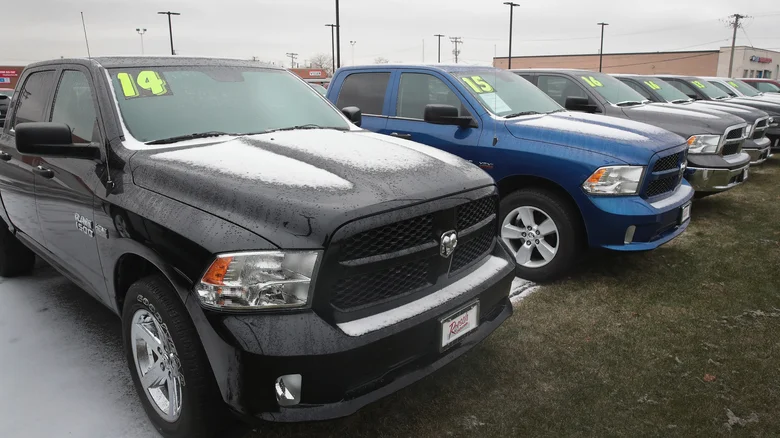
Ram tailgates opening mid-drive
One of the worst things for a truck owner is losing items while driving, and that’s what led Fiat Chrysler Automobiles (FCA) to recall 1.1 million Ram pickup trucks in 2019.
The reason was faulty power tailgate latches that might stop working and let the tailgate open while the truck was moving. This could be very dangerous, not just for the driver but for other people on the road who might run into fallen cargo.
The recall included Ram 1500, 2500, and 3500 models made between 2015 and 2017 that had power-locking tailgates. Trucks with manual tailgates or eight-foot beds weren’t part of the recall. The issue came from a part inside the latch that could weaken and break over time, especially with heavy use.
Even though there weren’t any reports of injuries or crashes at the time, the chance of something bad happening made FCA take quick action.
Owners were told not to overload the truck bed and to tie down any loose items until the trucks were fixed. Dealerships repaired the tailgate latches to make them stronger, and the cost of the repairs was covered under the recall.
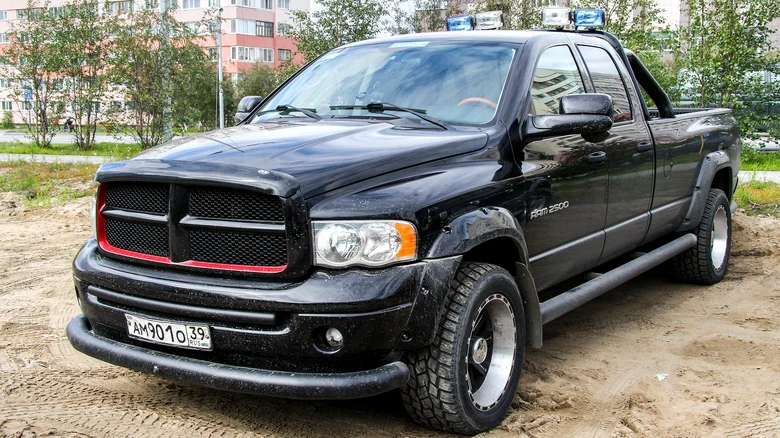
Ram steering recall
Being able to steer properly is something no truck driver should ever have to worry about, but that concern is exactly what led Chrysler to recall 1.2 million Ram trucks in late 2013.
The main problem involved the tie rods, which could break if they weren’t put in the right way during the truck’s assembly. If the tie rod broke, the driver could suddenly lose control of the steering, which could lead to a very dangerous situation.
Most of the trucks recalled were 2003 to 2008 Ram 2500 and Ram 3500 models. Some 2008 to 2012 Ram 2500, 3500, 4500, and 5500 trucks were also included, as well as the 2008 Ram 1500 4×4 Mega Cab.
Chrysler’s internal checks found that around 453,500 of these trucks might have had tie rods that were not aligned correctly during the build process, making them more likely to break when under pressure.
At the time of the recall, there had already been six crashes linked to this problem, two of which caused injuries. The crashes involved Ram 2500 and Ram 3500 models. Chrysler said that dealers would start replacing the tie rod parts on affected trucks beginning in January 2014.
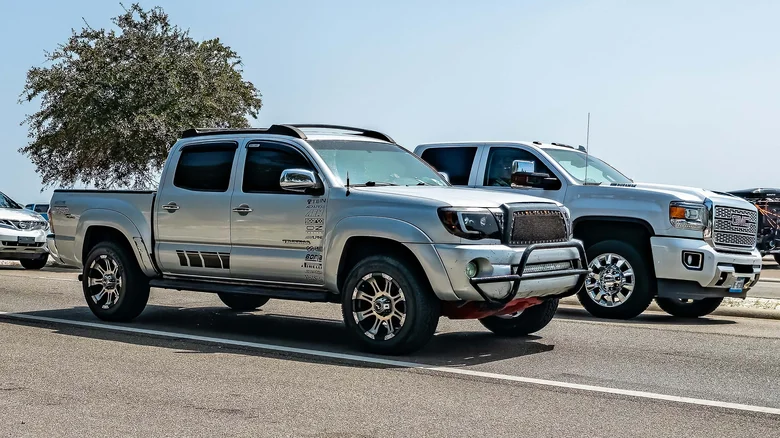
Toyota frame corrosion
In 2016, Toyota agreed to pay $3.4 billion to settle a case over rust problems in the frames of around 1.5 million vehicles. The affected models included the 2005–2010 Tacoma, the 2007 and 2008 Tundra, and the 2005 to 2008 Sequoia. Drivers had reported that the frames were rusting badly, which weakened the structure of the vehicles.
The issue was caused by poor rust protection during the manufacturing process, which led to faster corrosion — especially in areas where road salt is used during winter. This kind of rusting was dangerous because it could cause parts of the frame to break.
As part of the settlement, Toyota agreed to check the frames of the vehicles and replace them if needed, without charging the owners.
Toyota did not say it was at fault in the settlement. However, in a statement, the company shared its focus on keeping customers happy and safe: “We want our customers to have a great ownership experience, so we are pleased to settle this litigation in a way that benefits them and demonstrates that we stand behind the quality and reliability of our vehicles.”
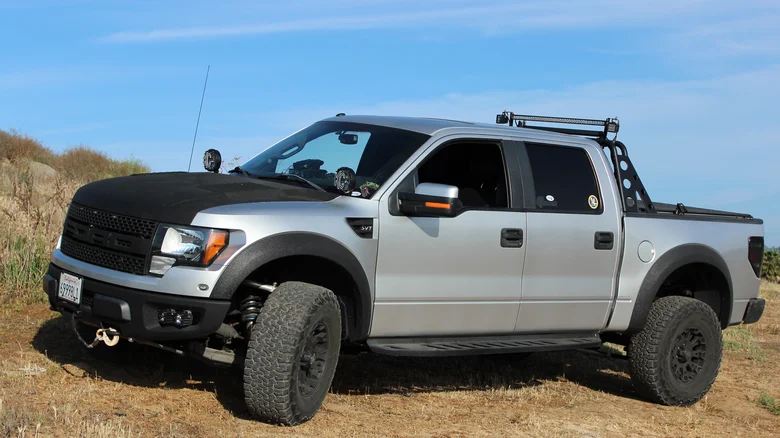
Ford fuel tank strap corrosion
In 2011, Ford dealt with a major problem when it had to recall 1.2 million pickup trucks because of a rust issue. The problem was with the fuel tank straps, which could rust and snap, especially in areas where road salt is used often in winter.
If the straps broke, the fuel tank could fall off the truck, which created a serious danger of fuel leaks and possible fires. Because of how risky this was, the recall became a top concern.
The recall covered Ford F-150 and F-250 trucks made between 1997 and 2004, along with the Lincoln Blackwood, which was only made in small numbers.
While the original strap design worked fine under normal conditions, long-term exposure to salt on the roads made them more likely to fail. Drivers began reporting that their fuel tanks were dropping onto the road, which led to an investigation and the recall.
To fix the issue, Ford had dealerships replace the rusty straps with new ones made of stronger, rust-resistant material. If both straps had already broken and the fuel tank was damaged, Ford would replace the tank at no cost to the owner.
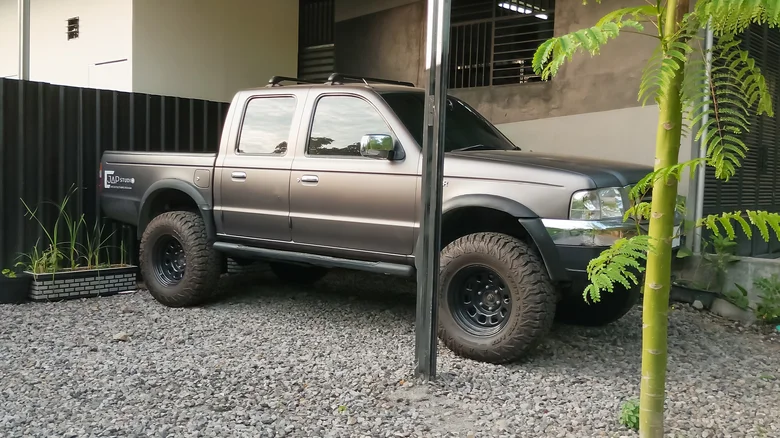
Ford cruise control switch recall
Ford’s image of dependability took another hit in 2005 when the company recalled 3.8 million vehicles due to a dangerous problem with the cruise control deactivation switch.
This small part played an important role, but it had the potential to start fires in many different Ford vehicles, including the well-known F-Series trucks.
The biggest concern was that the switch could overheat and cause a fire even when the vehicle wasn’t running. This issue affected popular models like the F-150, Expedition, Lincoln Navigator, and Bronco, built from the early 1990s to 2002.
Also Read: 10 Cars That Mechanics Recommend for Life-Long Reliability and 250,000+ Mile Potential
There were reports of smoke and fires starting under the hood, which led to serious safety warnings for both drivers and anything near the parked vehicles.
To correct the problem, Ford offered a repair that included adding a fused wiring harness to stop the switch from overheating.
Vehicle owners were asked to bring their cars or trucks to a dealership for the free repair. Ford also reminded customers to watch out for signs like cruise control or brake lights not working, which could point to a switch issue.

